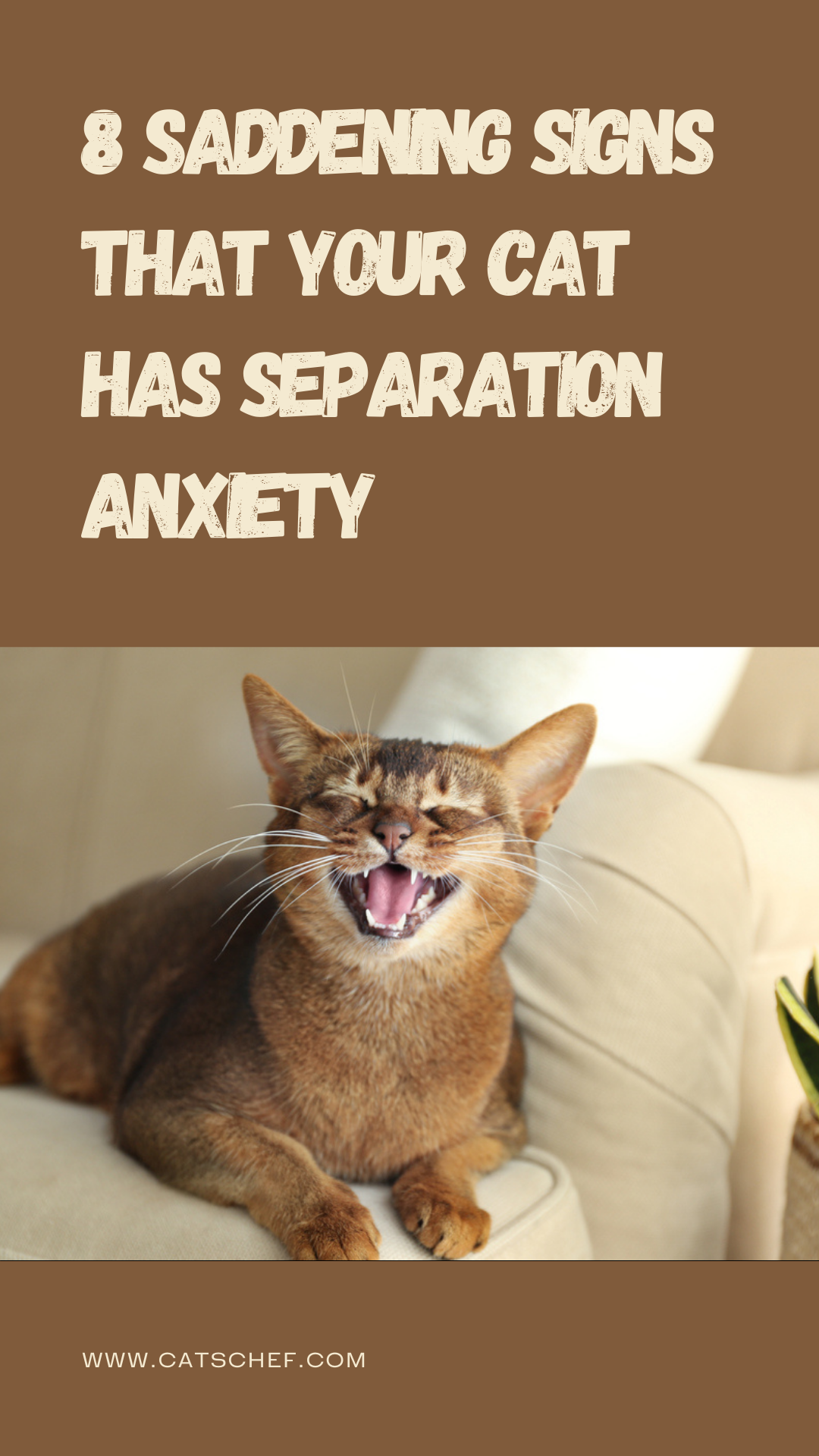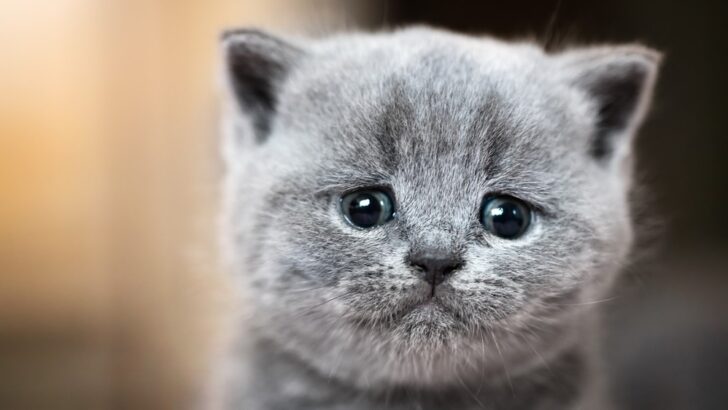If you’re a proud cat parent, I’m sure you never wish to leave your kitty’s side. You’d be the happiest if getting a cat would also get you a free-from-ever-leaving-your-house-again ticket, so you could spend every second of the day with your little cuddle buddy.
But unfortunately, reality is nothing like that dream, and you and your kitty simply have to come to terms with it. It’s natural that you have a job to go to and a social life to uphold, but bear in mind that your kitty is not quite aware you have other obligations besides her.
How is she dealing with it? Where does she think you go once you leave your home?
“Oh, my hooman has probably left me here alone and will never come back!” is what felines who struggle with separation anxiety would probably say (if they could speak human, of course).
Separation anxiety is a disorder characterized by a strong fear of being away from someone. Many animals are prone to this condition, including our poor feline companions.
If you suspect your cat may be struggling with separation anxiety, here are eight signs that can either confirm or deny your suspicion.
1. She is extremely vocal
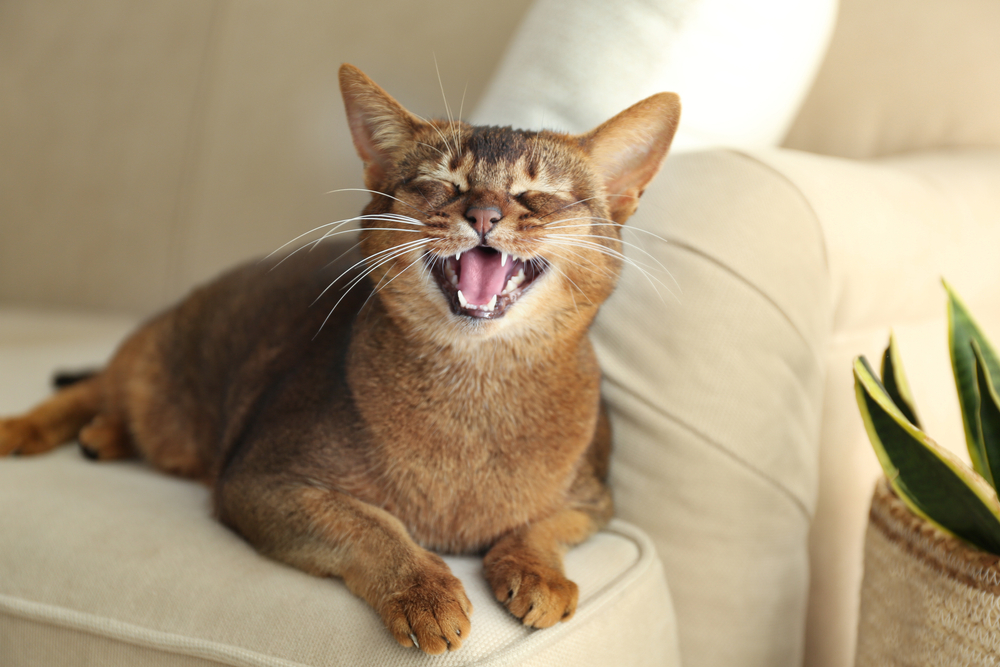
When a cat starts to excessively meow or cry, that could be a sign of many different things. She could be vocally more expressive due to boredom, hunger, some pain she’s dealing with, or a genuine desire to communicate with her owner.
However, the reason behind her meowing constantly can also be hidden in the fact that she’s dealing with separation anxiety.
If you notice your kitty desperately meows every time you’re about to leave your home, that could be because she’s trying to lure you back inside and stop you from going anywhere.
I suggest you linger for some time behind closed doors next time you leave your cat alone. If you hear her meowing all the while, you can be sure you have a cat with separation anxiety.
2. She has lost her appetite
A sudden change in appetite in cats should never be ignored. It can be a sign of some underlying health issues, like cat flu, diabetes, hyperthyroidism, fever, pancreatitis, kidney disease, and more. However, it’s also a common indicator of feline separation anxiety.
If your kitty is refusing to eat her food or is not eating nearly as much as she used to, you should know that that’s her way of coping with the lack of your attention. She could also be eating a lot quicker than previously and as a result, vomiting the food all over the place.
Monitor your fluff’s mealtimes and ensure she’s getting all the nutrients she needs. And if you’re unable to fix her appetite on your own, ask the vet for advice.
3. She grooms herself excessively
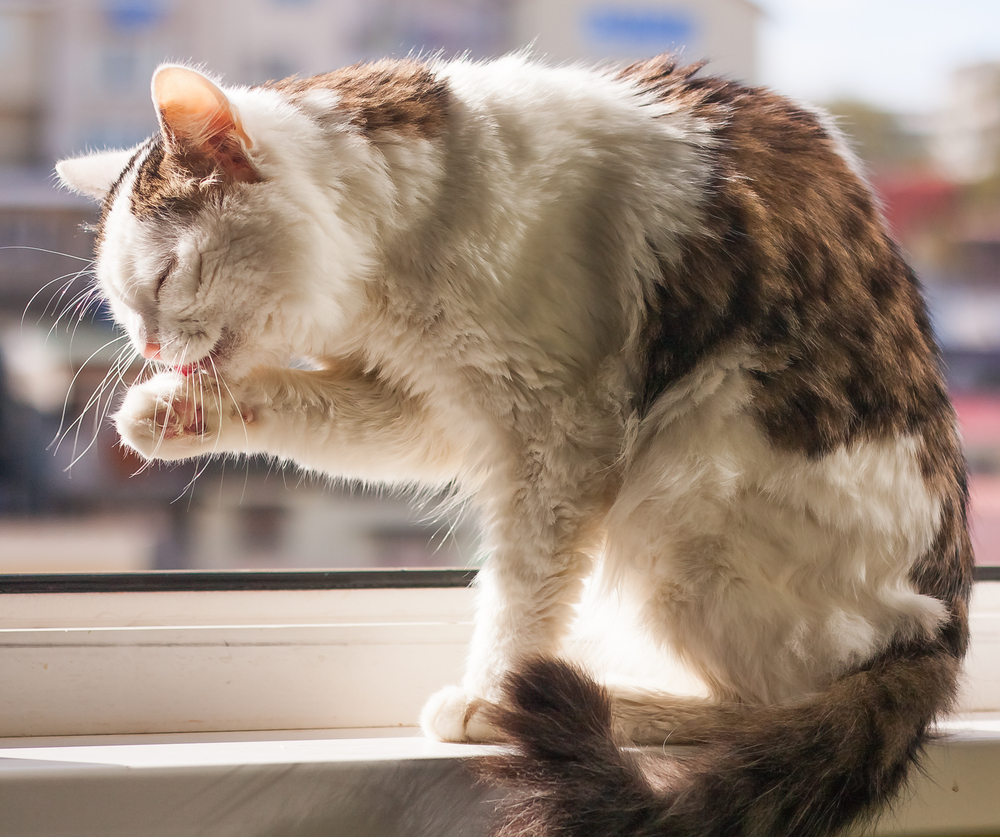
Cats are known for their need to groom themselves several times a day, and your furball is no exception. But there’s a fine line between normal and excessive self-grooming that’s fairly easy to spot. And once that line is crossed, most devoted cat parents usually go into worried mode.
Excessive self-grooming is a common symptom of separation anxiety and is usually linked to stress relief. It often causes bald patches on the fur, mostly located on the belly or hind leg area.
If you spot your kitty compulsively grooming herself, make sure to speak to the vet and ask for advice.
4. She is overly excited when you come home
Does your cat always welcome you with excited meows every time you come back home? Does it seem like she was waiting at the door the entire time you were away? That’s because she probably did.
High levels of excitement in felines can be telltale signs something’s not quite right. The more she’s left alone, the more desperate she’ll become.
If your cat is following you around your home from the moment you arrive, if she’s jumpy and trying to climb on top of you, and if she somehow always manages to find a way to be in your face, you can be sure she has separation anxiety.
5. She doesn’t use her litter box
A feline who’s dealing with separation anxiety will oftentimes struggle with uncontrollable urination needs. This means she will pee (or poop) almost everywhere, wherever the opportunity presents itself, which is something cats are usually not known for.
If your kitty is failing to use her litter box or begins having other litter-box-related problems, make sure you get to the root cause as soon as possible. It’s always advisable to consult a vet as he will certainly know what to do.
Your kitty might be peeing all over your stuff because she misses you and doesn’t know how to convey it differently for you to understand.
Please, if she does her business on your shoes, bed, or clothes, don’t punish her. Punishment is never advisable as it doesn’t teach our furry friends any lesson, and can actually do more harm than good.
6. She constantly attempts to escape
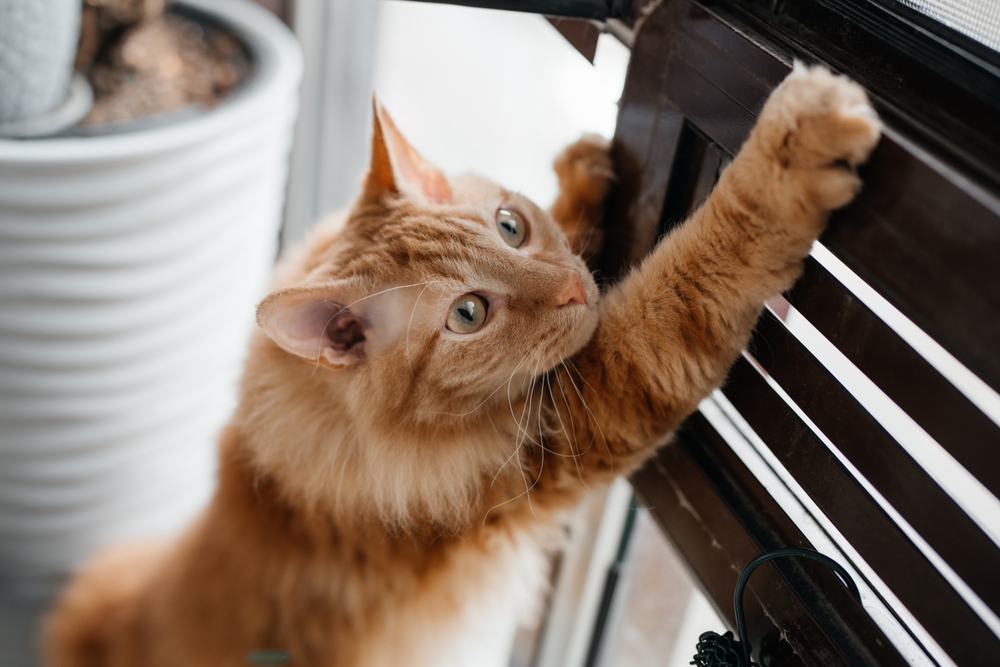
Separation anxiety in your cat can also manifest itself in her desire to escape. Once you leave your home, and she ends up alone, she might perceive the place she’s in as a prison, and try to escape with the intention to find you and bring you back.
If you notice your cat is fine when she’s with you but keeps scratching the front door as soon as you go, that can be a sign she suffering from separation anxiety.
7. She appears very lethargic
A sudden drop in energy or lack of interest in playtime is another sign that your kitty is suffering from separation anxiety.
If she spends a lot of time away from you, either sleeping or just resting by herself, try to intrigue her with a game. Cats must be playful and active – it’s a part of their nature. By playing with them, you will restore their lost energy and show that you actually care about them.
8. She constantly paces around the house
I know we just said how lethargy can be a sign of separation anxiety, but believe it or not, it can also manifest through active pacing around the house.
Cats are known to be very energetic, and they tend to pace up and down, especially before their meal time. But if your kitty is doing it excessively, particularly right before you’re about to leave your home, it could be because she’s anxious about your departure.
